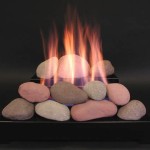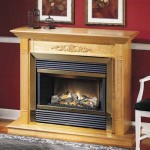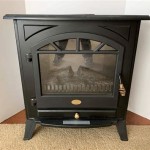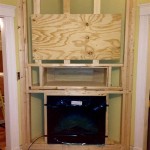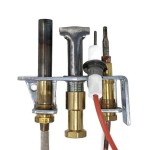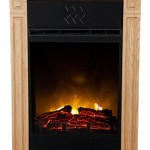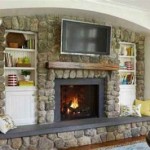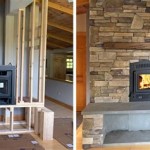Gas Fireplace Flue Requirements: Ensuring Safety and Proper Operation
Gas fireplaces provide a cozy and inviting ambiance, but their safe and efficient operation hinges on the proper installation and maintenance of their flue systems. The flue, also known as the vent, is a critical component, acting as a conduit for combustion byproducts to be safely exhausted outdoors. Gas fireplace flue requirements are dictated by stringent building codes and safety standards, ensuring the well-being of occupants and the integrity of the structure. Understanding these requirements and adhering to them is paramount for homeowners and installers alike.
Importance of Proper Gas Fireplace Flue Installation
The flue serves a crucial role in the operation of a gas fireplace. It acts as a chimney, drawing combustion gases, including carbon monoxide, away from the living space and into the atmosphere. A properly functioning flue ensures that these dangerous byproducts do not accumulate, posing a risk of asphyxiation or fire. Furthermore, the flue promotes efficient burning by pulling in fresh air for combustion. An improperly installed or neglected flue can lead to serious consequences, including:
- Carbon monoxide poisoning: A blocked or malfunctioning flue can cause carbon monoxide to back up into the living space. Carbon monoxide is a colorless, odorless gas that can be fatal.
- Fire hazards: Improper installation or lack of maintenance can create fire hazards. Soot buildup in the flue can ignite, potentially leading to a chimney fire.
- Reduced efficiency: A clogged or damaged flue restricts airflow, reducing the efficiency of the fireplace and leading to higher energy consumption.
- Damage to the fireplace: Improper flue installation can damage the fireplace itself, leading to leaks and other problems.
Key Gas Fireplace Flue Requirements
Gas fireplace flue requirements vary depending on the type of fireplace, its location, and local building codes. However, some universal requirements include:
1. Flue Material and Diameter
The flue must be constructed of approved materials, typically stainless steel or clay tile, with a diameter appropriate for the fireplace's output and type of gas used. The flue lining must be smooth and free of obstructions to allow for efficient venting. Local building codes may specify minimum flue diameters and materials for various fireplace sizes and types.
2. Flue Length and Height
The flue must be of adequate length and height to ensure proper draft and prevent backdrafting. The minimum height requirement varies based on factors such as the local climate, wind conditions, and the surrounding structures. Generally, the flue should extend several feet above the roofline to ensure that combustion products are safely released into the atmosphere.
3. Flue Connections and Sealants
All flue connections must be securely fastened and sealed to prevent leaks. This includes connections between the fireplace, the flue, and any vent terminations. Fire-resistant sealant must be used to ensure a tight and durable seal. The installation should adhere to manufacturer specifications and local building codes.
4. Flue Inspection and Maintenance
Regular inspection and maintenance are critical for the safe and efficient operation of a gas fireplace. An annual inspection by a qualified professional is recommended. This involves checking for blockages, cracks, and other signs of deterioration. The flue should be cleaned as needed to remove soot and creosote buildup, ensuring optimal airflow and minimizing fire hazards. The fireplace's owner also has responsibilities in maintaining the flue, ensuring proper sealing and preventing obstruction.
Additional Considerations for Gas Fireplace Flues
Beyond the fundamental requirements, certain factors may necessitate additional considerations for gas fireplace flue installation and maintenance. These include:
1. Location of the Fireplace
The location of the fireplace impacts the flue's design. For example, a fireplace situated near a shared wall might require special venting considerations to prevent potential issues with neighboring units. It is essential to consult with a qualified professional regarding the specific requirements for your fireplace's location.
2. Type of Gas Used
The type of gas used in the fireplace - natural gas or propane - can influence the flue's design and materials. For example, propane requires a slightly larger flue diameter due to its higher heating value. Consult the fireplace manufacturer's specifications and local building codes for the appropriate flue requirements for your gas type.
3. Fireplace Design
The design of the fireplace itself can also impact the flue system. Some fireplaces have built-in vent systems, while others require separate flue installations. Thoroughly review the manufacturer's instructions and consult with an installer to determine the specific requirements for your fireplace model.
Gas fireplace flue requirements are essential for the safe and efficient operation of these popular heating appliances. By understanding and adhering to these requirements, homeowners can ensure the well-being of themselves and their families, while preserving the structure's integrity and enjoying the warmth and ambiance of their gas fireplace for years to come.
Gas Fireplace Venting Explained Heat Glo
Gas Fireplace Venting Explained Heat Glo

Enviro Quick Step Under Floor Flue Installation Heatmaster

Gas Fireplace Flue Exterior Inspections Internachi Forum
Part 3 7 Heating Appliances Ncc

What Are The Best Ways To Vent A Gas Fireplace Zoroast

Vented Vs B Vent Direct Free Dixie S

What Are The Best Ways To Vent A Gas Fireplace Zoroast

Enviro Quick Step Vertical Flue Installation Sheet Heatmaster

Enviro Quick Step Horizontal Flue Installation Heatmaster

